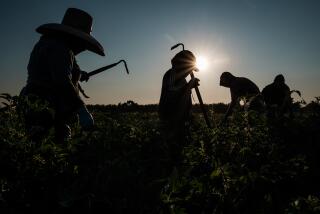Frank Wyle, aerospace innovator and L.A. museum benefactor, dies at 97
- Share via
Frank Wyle was once asked how he had managed to navigate a life of diverse experiences. The aerospace innovator replied that he envisioned it as a series of chapters: Each was to be embraced with excitement and without wistfulness for the past.
That philosophy guided Wyle down a colorful path during which he launched Wyle Laboratories — the first independent laboratory to test airplane components and systems — co-founded the Craft and Folk Art Museum; served on numerous councils and boards, including for the Metropolitan Water District of Southern California and KPFK radio; and established a 4,000-acre cattle ranch in the foothills of the Sierra Nevada.
It was on that ranch, which he considered his refuge, that Wyle died Aug. 29 of natural causes at 97.
He had been raised in Glencoe, a suburb on Chicago’s North Shore, by parents who owned a chain of hat stores. Their last name, Weil, was part of the store name. When people incorrectly pronounced it “wheel” and not “while,” the couple changed the spelling to Wyle. The mispronunciation then became “wy-lee.” It stuck.
Wyle, the youngest of two children, was born July 23, 1919, and showed an early aptitude for technology, building model airplanes as a boy. He graduated from the Massachusetts Institute of Technology in 1941 with a degree in mechanical engineering and took a job in Burbank. By that time, his parents had relocated to Westwood.
After a stint making patio furniture, he founded Wyle Laboratories in 1949 with one employee. The complexity of airplanes required that their components be scrutinized in simulated conditions, a need Wyle’s El Segundo-based business filled. The company later tested rocket engines and major subsystems of the Apollo spacecraft.
Acquiring several electronics distribution companies, it became known as Wyle Electronics after a buyout split up the company. Wyle was chief executive until 1979 and continued as chairman of the board until 1984. Sales had reached $1.2 billion when he retired.
The pipe-smoking Wyle was an ardent poker player with a trim mustache who liked to sport bow ties and quip that he was a ringer for Broadway producer David Merrick. In social circles, he was the counterpart to his convivial wife, Edith, a passionate artist who enjoyed hosting black-tie fundraisers that drew Hollywood’s elite, including Henry Fonda and Jimmy Stewart.
“There’s an odd twist to our relationship,” she told The Times in 1976. “Frank is the breadwinner, but he’s much more supportive of my complicated lifestyle than I am of his. Businessmen, for example, are supposed to carry their problems around constantly, but Frank leaves the office behind him.”
The couple delighted in global travels, visiting museums in El Salvador and China. One of their closest friends was muralist and sculptor Rico Lebrun.
In 1965, the Wyles established the Egg and the Eye, a restaurant and shop on Wilshire Boulevard that boasted 54 types of omelets and a collection of international crafts. Eventually it evolved into the nonprofit Craft and Folk Art Museum, offering unusual gifts and eclectic exhibits.
“Frank liked younger board members to get involved and shake things up,” CAFAM Executive Director Suzanne Isken said. “He encouraged me over and over again to start a travel program because it brings people together.”
After his wife died in 1999, Wyle continued to attend board meetings, and members heard often his affection for his three children — Diana Munk, Nancy Romero and Stephen Wyle — eight grandchildren and 16 great-grandchildren. Munk’s 2002 death following surgery to remove a tumor on her heart left him devastated.
In 2012, Wyle married Anita Alvarez and the two split their time between Brentwood and the North Fork ranch he bought in 1959 where he took to donning a black Stetson.
“He would tell anyone, whether they were interested or not, how many calves he had at the time,” his son, Stephen, said.
Wyle once described Circle W Ranch as his Garden of Eden, adding, “Beyond its natural beauty, the ranch is a challenge we faced up to, conquered and, in the process, fell in love with.”
Both of his properties had workshops where Wyle took on complex projects, building his own staircase and making gifts of homemade clocks and barometers. When the hobby became difficult for his aging hands, he directed others through the process.
Perhaps the most defining feature of the engineer, rancher, businessman, benefactor — as his grandson actor Noah Wyle recalled — was a strategic but mercurial mind, inquisitive and restless and constantly transitioning from one idea to the next.
More to Read
Sign up for Essential California
The most important California stories and recommendations in your inbox every morning.
You may occasionally receive promotional content from the Los Angeles Times.














